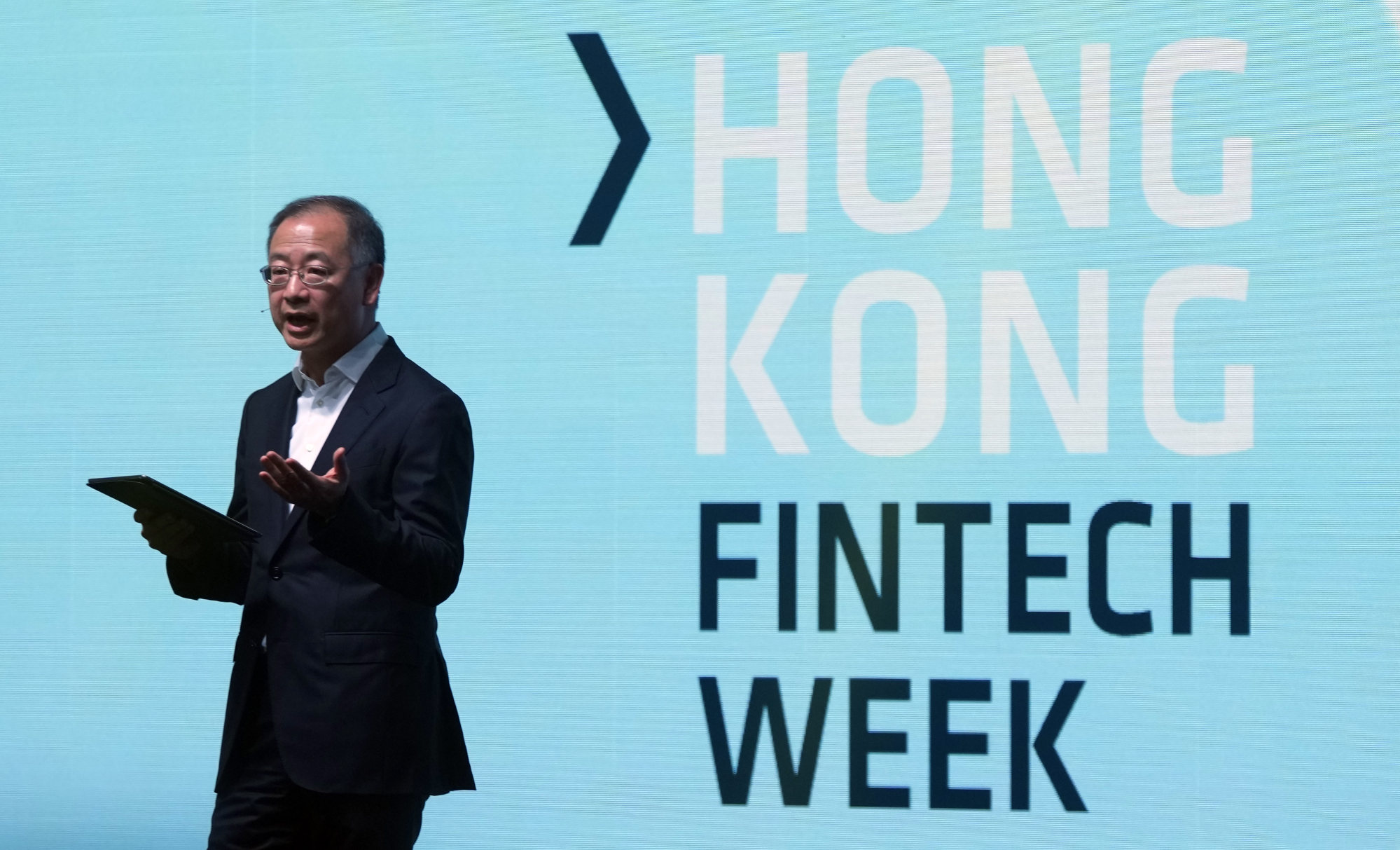
Hong Kong: Exchange Fund’s 9-month loss balloons to a record US$34 billion from ‘triple whammy’ of plunging stocks, bonds and currency
- HKMA chief Eddie Yue expects the Exchange Fund to report a full-year for 2022, the third such time in the fund’s history
- The fund’s cumulative losses totalled HK$265.5 billion over nine months, the worst nine-month loss on record
The Exchange Fund, the war chest used to defend the Hong Kong dollar from attacks by short-sellers, lost a record HK$265.5 billion (US$34 billion) from investments in the first nine months as it fell victim to a “triple whammy” of falling valuations for equities, bonds and currency holdings.
Global markets have been falling in the wake of the Covid-19 pandemic, which has caused global supply chain disruption for many industries. Russia’s invasion of Ukraine also set off an inflationary spiral for many countries, with the prices of food and energy spiking higher, leading to higher interest rates. Meanwhile, China’s economy has slowed amid macroeconomic headwinds and a slumping property market.
The fund lost HK$100.1 billion during the three months that ended in September, making it the second-biggest quarterly loss in the 19 years since it began reporting quarterly earnings. The record was HK$112 billion in the first three months of 2020 during the onset of Covid-19 pandemic.
This year, the fund lost HK$95.4 billion in the second quarter, following a HK$48.8 billion loss in the preceding three months.
It is also only the second time in history – after the 2008 global financial crisis – that the fund has recorded three consecutive quarters of losses. The loss for the first nine months has surpassed the HK$83.3 billion loss for the same period in 2008.
Yue said the Exchange Fund is likely to report a full-year loss, the third such time in its history. The fund posted its first annual loss of HK$75 billion in 2008 amid the global financial crisis, followed by a HK$15.8 billion loss in 2015 in the wake of the Chinese stock market crash.
FTX remnants remind Hong Kong of the bullet it dodged
With equity and bond markets still down 10 per cent so far this year despite the recent rebound, “the chances of a substantial loss for this year will still be there,” Yue said at a media briefing after the Legco meeting.
On the outlook for next year, Yue said the markets could still be “very uncertain and challenging” due to the high interest rates, global economic slowdown, and the likelihood of a recession in major economies.
“With that backdrop, there could be an impact on corporate earnings. This is something that we will have to watch because if corporate earnings start to come down, there will again be an impact on the financial markets,” he said.
“What we have been trying to do is to be defensive and keep the loss of the Exchange Fund as small as possible.”
Despite the loss, the Exchange Fund will still pay HK$28.4 billion to the government for the nine-month period, based on a preset formula.
Yue had warned of financial headwinds in April, when he said that “the Exchange Fund would face a ‘triple-whammy’ situation with the valuations of equities, bonds and foreign exchange falling at the same time.” In the US, the S&P 500 index fell 5.3 per cent during the third quarter to its lowest level in nearly two years, while Hong Kong’s Hang Seng Index tumbled 21.2 per cent to its lowest level in 11 years.

The Exchange Fund allocated 72 per cent of its investments in bonds, 12.3 per cent in offshore equities, 6.6 per cent in deposits, 5.1 per cent in overseas property or other private-equity investments, and 4 per cent in Hong Kong stocks, based on HKMA data at the end of 2021.
In the first nine months, global bond markets lost 20 per cent and global stock markets plummeted by 27 per cent, according to the HKMA, which cited the Bloomberg Global Aggregate Total Return Index and the MSCI All Country World Index.
The Exchange Fund fared comparatively better as it made a loss of only 6 per cent in the same period, said Yue.
Rising interest rates in the US have resulted in a strong US dollar, which sent the pound sterling plummeting to an all-time low. The euro has also hit a 20-year low.
Volatility in the exchange rates forced the fund to post a valuation loss of HK$30.8 billion from valuation changes on its assets, a reversal from the HK$5.6 billion gain a year earlier.
The fund’s investment loss in Hong Kong-listed equities widened 3.8 per cent to HK$27.3 billion during the third quarter. Losses from offshore equities ballooned 27-fold to HK$19.2 billion from HK$700 million a year ago.
Bond investments lost HK$22.8 billion in the quarter, in contrast with the gain of HK$8.2 billion a year ago.
The HKMA did not disclose the returns from its long-term investments during the quarter, data it typically publishes at a later date. Returns were up HK$17.2 billion in the corresponding period in 2021.
“The Exchange Fund’s investment returns are likely to improve from the fourth quarter onwards,” said Kenny Ng Lai-yin, a strategist at Everbright Securities International.
The expected slowdown in the pace of interest rate increases in the US as inflation peaks will help the performance of the stock and bond markets and weaken the US dollar, he said.
“This will have a positive effect on the performance of the Exchange Fund.”

